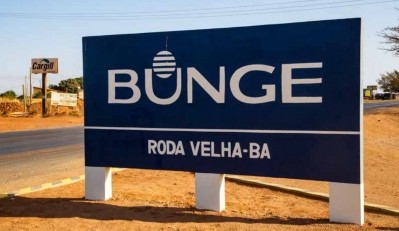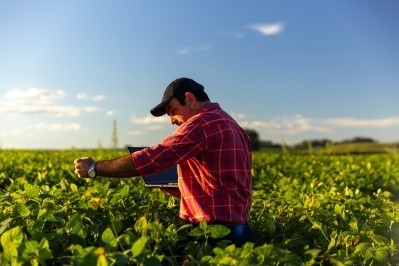Retailer led roadmap aims to decouple meat from soy linked deforestation

The RSG represents major commercial chains like Ahold Delhaize, Aldi South, Aldi North, Asda, Co-op (UK and Switzerland), Lidl, Marks & Spencer, Migros, Sainsbury’s, Tesco and Waitrose & Partners – which taken together operate nearly 50,000 supermarket outlets.
It collaborated with major campaigning, civil society organizations and other groups to develop a roadmap for halting deforestation and conversion of other natural ecosystems related to soy production. The RSG said the publication comprises the principles and practices that are urgently needed within the retail sector for companies to play their part in halting deforestation and conversion.
Although deforestation and conversion risk is widespread in soy sourcing areas, it is particularly acute in areas such as the Cerrado in Brazil and he Gran Chaco, stretched between Paraguay, Argentina and Bolivia, in South America, noted the Retail Soy Group.
The idea of the roadmap is to get NGOs to agree and align on what "good" looks like so the private sector can reflect on how to make it workable, said Will Schreiber, representative of the RSG.
The group says the document shows how companies, regardless of where they are on their journey to tackle deforestation and conversion, can quickly identify practical steps to move forward based on five critical principles:
- Credible commitments throughout the value chain
- Supply chain transparency as a requirement for market access
- Engaging, and not excluding, challenging regions as a matter of policy
- Collaborating with civil society groups and local communities in producing regions
- Scaling up ranges that offer more sustainable diets for customers
In terms of the credible commitments principal, the guidance outlines how every company should have effective policies regarding the sustainable production of soy that use the definitions, principles, and guidance agreed within the Accountability Framework initiative. "Commitments must include the presence of a cut-off date (August 2020 at the latest) after which the legal or illegal conversion of natural ecosystems is prohibited. Companies should require direct and indirect suppliers to have aligned public commitments, as well as to have time-bound action plans for delivering against them."
These stipulations, it says, should apply to suppliers at their group level, which means suppliers will not be able to sell ‘clean supply’ in one part of their supply chain while continuing to support deforestation in another.
And Schreiber said it was no longer about ensuring that Product A or Product B is deforestation- and conversion-free, but rather that every company and every link in the supply chain is fully committed to only sourcing responsibly.
Jean-François Timmers, advocacy manager on deforestation- and conversion-free supply chains for WWF, said: “We need swift and far-reaching action. Previous measures such as improving individual supply chains and resorting to segregated ‘clean’ niche supplies have not proven effective to curb ecosystem destruction. We welcome the principles outlined in this document and urge companies to embrace them, follow their guidance, and demonstrate much greater leadership in halting deforestation and conversion.”
'Certification alone cannot drive mainstream transformation'
The RSG said certification alone - even under identity preserved or segregated models - cannot drive the much-needed mainstream transformation in soy supply chains.
"It may well be that the same suppliers providing physically certified materials to the company are providing deforestation-linked soy to other less demanding clients or markets. It is therefore critical that companies engage their suppliers to require and support them to take action across their entire operations to end soy-driven deforestation and conversion, rather than only cleaning up their own supply chains.
"As a supplementary step taken by supply chains, certification may play a role in providing additional evidence to support a third-party verified chain of custody to deforestation- and conversion-free regions within a specific supply chain, as well as promoting greater awareness of the benefits of responsibly produced soy across a range of other issues beyond deforestation- and conversion-free production. However, whilst this provides evidence that a company’s products may be deforestation- and conversion-free, it is not a separate or singular track for delivering on the principles and practices a responsible company needs to be taking to demonstrate effective action."
'Now no deforestation means no deforestation'
Critically, the roadmap finally moves away from achieving deforestation-free supply chains through certification, credits, or offsets: now no deforestation means no deforestation, said US-based not-for-profit group, Mighty Earth.
“Up to now, asking nicely has proven futile. Instead, we need commercial action – backed up by robust monitoring and evaluation – to force change by rewarding clean suppliers at a group level and sanctioning others until they clean up, too.
“The roadmap acknowledges the need for commercial penalties, but also stipulates that buyers should engage and support the supplier to come up with a time-bound plan to address the problem."
Those campaigners said it was important that retailers be crystal clear that non-compliance with a cut-off date, transparency and group-level responsibility principles would result in commercial consequences – such as suspension of contracts or dropping of volumes. "This is easier if these stipulations are written right into the contracts.”
This article was amended on Monday November 1 to stress that the RSG's roadmap comprises 'principles' and 'practices' companies should adopt to halt soy linked deforestation. It does not contain pledges by supermarket chains.












